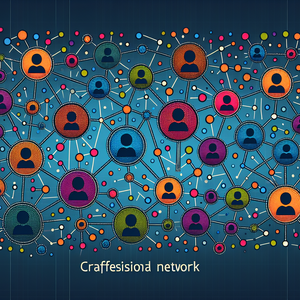Figma as a Career Catalyst

Figma’s user-friendly interface and collaborative features have made it a favorite among designers and teams alike. However, its potential as a career catalyst extends beyond traditional design roles. Many professionals across different sectors have discovered how Figma can enhance their skill sets and open new opportunities. The platform enables effective collaboration, real-time feedback, and rapid prototyping, allowing users to create and iterate designs seamlessly. This versatility not only improves workflow efficiency but also enhances communication between teams, making it an essential tool for anyone looking to thrive in a digital workplace.
Success Stories of Career Transformation
Consider the story of Sarah, a graphic designer who felt limited in her role. After taking online courses focused on Figma, she began applying her newfound skills to UI/UX projects. By creating interactive prototypes and collaborating with developers seamlessly, Sarah significantly improved her portfolio. Within a year, she transitioned to a UI/UX designer role at a leading tech company, where she now leads projects that influence user experiences. Her ability to visualize and prototype user interfaces gave her a competitive edge, proving that adaptability and continuous learning can lead to significant career leaps.
Marketing Professional to Product Manager
Another inspiring example is Jacob, a marketing professional who recognized the importance of design in product strategy. After upskilling in Figma, Jacob started crafting product mockups and user flows, which caught the attention of his managers. His ability to bridge the gap between marketing and design led to his promotion to product manager, a role where he now drives product development with a keen understanding of user needs. Jacob's story illustrates how Figma can empower professionals to take ownership of their career progression by enhancing their understanding of the design process.
Freelancer to Design Consultant
Emily, a freelancer specializing in branding, found herself struggling to differentiate her services in a competitive market. By mastering Figma, she could offer interactive prototypes and collaborative workshops for clients. Her ability to engage clients through visual storytelling not only expanded her service offerings but also increased her rates significantly, establishing her as a sought-after design consultant. Emily's journey underscores the importance of leveraging tools like Figma to enhance service value and client engagement in freelancing.
Getting Started with Figma
For those eager to embark on their Figma journey, here are some practical tips: 1. Leverage Online Resources: The internet is replete with resources for learning Figma. Websites like Coursera, Udemy, and Figma’s own learning center offer comprehensive tutorials, allowing beginners to grasp the fundamentals quickly. These platforms provide structured courses that cover everything from the basics to advanced techniques, making it easier to learn at your own pace. 2. Join the Figma Community: Engaging with the Figma community can provide invaluable insights and support. Participating in forums, attending webinars, and joining local meetups can foster connections with other users and industry professionals. Being part of a community allows beginners to ask questions, share experiences, and stay motivated throughout their learning journey. 3. Practice Through Projects: The best way to master Figma is through hands-on experience. Start by redesigning existing applications or websites, or create personal projects. Building a portfolio that showcases your Figma work can be a powerful tool when seeking new opportunities. Real-world projects not only enhance your skills but also demonstrate your capabilities to potential employers or clients. 4. Seek Feedback: Don’t hesitate to share your work with peers and mentors. Constructive criticism can help refine your skills and elevate your work to a professional level. Engaging with experienced designers can provide insights that you might not have considered, helping you to grow more rapidly. 5. Stay Updated: Figma frequently updates its features. Staying informed about new tools and functionalities can give you an edge in your career, making you a more versatile and knowledgeable professional. Following Figma’s blog, participating in webinars, and engaging with the community will help you keep your skills current.
Figma has proven to be more than just a design tool; it’s a powerful catalyst for career development across various fields. As demonstrated through the success stories of individuals who harnessed Figma to propel their careers, the potential for growth is immense. By mastering Figma and integrating it into their workflows, professionals can enhance their competencies, expand their portfolios, and unlock new opportunities. For those just starting their journey, the path is clear: embrace the resources available, engage with the community, and practice diligently. In doing so, you may find that Figma is not just a tool but a gateway to a flourishing career.
UI/UX Designer
Tech companies like Google, Apple, and startups in the SaaS space.
Core Responsibilities
Design and prototype user interfaces for web and mobile applications using Figma and other design tools.
Conduct user research and usability testing to gather insights and refine designs based on user feedback.
Collaborate with cross-functional teams, including product managers and developers, to create cohesive user experiences.
Required Skills
Proficiency in Figma, Adobe XD, or Sketch for designing interfaces.
Strong understanding of user-centered design principles and accessibility standards.
Excellent communication skills to articulate design decisions and collaborate effectively.
Product Manager
Companies like Amazon, Microsoft, and various tech startups.
Core Responsibilities
Lead product development initiatives by defining product vision, strategy, and roadmap based on market research and user needs.
Create wireframes and prototypes using Figma to visualize product features and gain stakeholder buy-in.
Collaborate closely with design and engineering teams to ensure alignment on product goals and timelines.
Required Skills
Familiarity with Figma and design thinking methodologies.
Strong analytical skills to interpret data and make informed product decisions.
Excellent project management skills, with experience in Agile methodologies.
Design Consultant
Freelance platforms, design agencies, and corporate consulting firms.
Core Responsibilities
Provide expert design advice and solutions to clients, focusing on branding and user experience.
Create interactive prototypes and presentations using Figma to demonstrate design concepts to clients.
Facilitate workshops and brainstorming sessions to co-create design strategies with clients.
Required Skills
Expertise in Figma and other design tools, with a strong portfolio showcasing past work.
Strong storytelling skills to convey design ideas effectively to non-design stakeholders.
Ability to work independently and manage multiple client projects simultaneously.
Front-End Developer
Digital agencies, e-commerce platforms, and tech companies.
Core Responsibilities
Translate design mockups and prototypes created in Figma into responsive web applications using HTML, CSS, and JavaScript.
Collaborate with UI/UX designers to ensure accurate implementation of design specifications.
Optimize web applications for maximum speed and scalability while maintaining a high level of usability.
Required Skills
Proficiency in front-end technologies (HTML, CSS, JavaScript, React, etc.) and familiarity with Figma for design hand-offs.
Strong understanding of responsive design principles and cross-browser compatibility.
Knowledge of version control systems like Git for collaborative development.
Digital Marketing Specialist
Marketing agencies, e-commerce businesses, and corporate marketing departments.
Core Responsibilities
Design visually appealing digital marketing assets such as social media posts, email campaigns, and website banners using Figma.
Analyze campaign performance data to refine design strategies and improve user engagement.
Collaborate with content creators and web developers to ensure cohesive branding and messaging across all digital channels.
Required Skills
Proficiency in Figma and graphic design tools like Adobe Photoshop and Illustrator.
Strong understanding of digital marketing principles and analytics tools (e.g., Google Analytics).
Excellent communication and teamwork skills to work effectively with diverse teams.


